Business
Gwinnett Partnership, It’s Influence, What Trends they See, and Resources to Empower Businesses [Podcast]
Published
4 years agoon
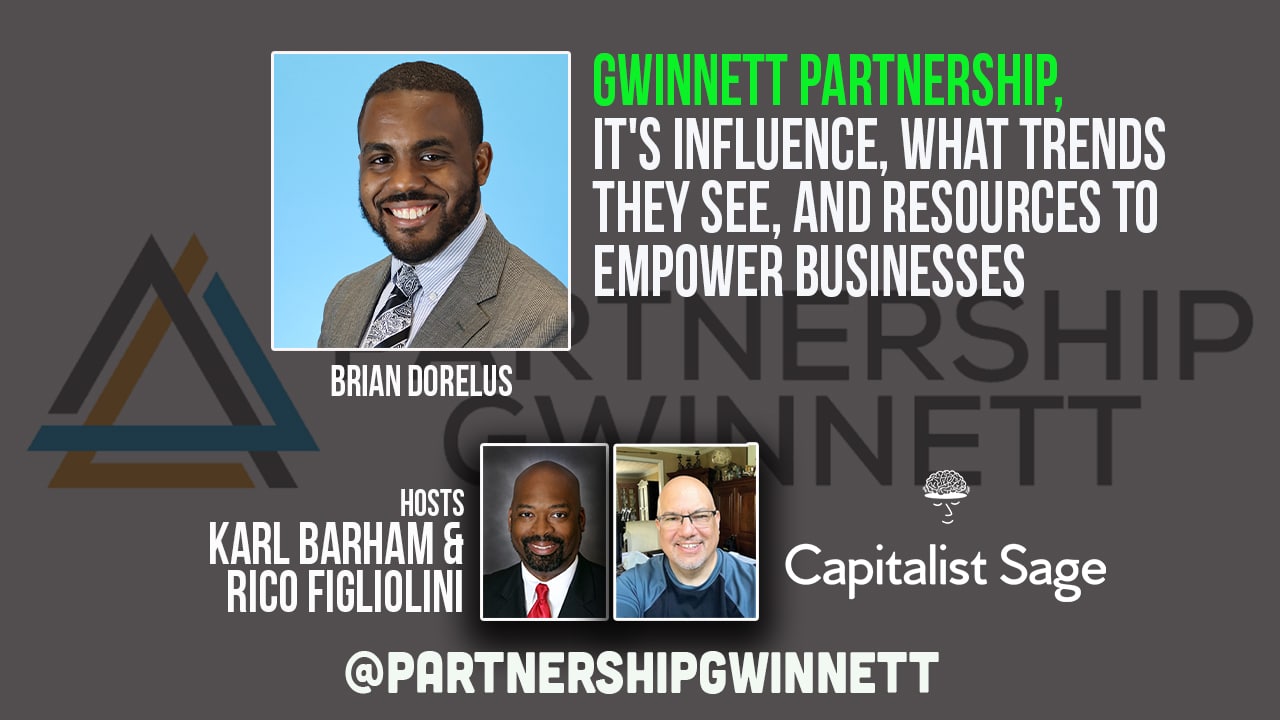
Partnership Gwinnett is the economic development initiative behind some of the most exciting business ventures that have started or relocated to Peachtree Corners. Brian Dorelus, project manager with Partnership Gwinnett, is our guest on today’s episode of the Capitalist Sage. Join Karl Karham, Rico Figliolini, and Brian, as they discuss what exactly Partnership Gwinnett is and does for business in our community.
Resources:
Website: https://www.partnershipgwinnett.com
Brain’s Email: BDorelus@ParntershipGwinnett.com
Timestamp:
[00:00:30] – Opening
[00:02:14] – About Brian and Partnership Gwinnett
[00:03:29] – How Partnership Gwinnett helps Businesses
[00:04:34] – Why Businesses Choose Gwinnett
[00:05:47] – Industries that are Thriving
[00:06:59] – Activity in Peachtree Corners
[00:08:12] – Bringing Startups to Peachtree Corners
[00:15:02] – Resources that Partnership Gwinnett Provides
[00:22:12] – Closing
“Partnership Gwinnett is the economic development agency for Gwinnett County. So it’s our job and our privilege to wake up every single day to recruit, retain, and expand industries in our five target sectors… And so what we do every day is just provide resources and be a one-stop shop for companies big and small, so they could continue to grow in our community.”
Brian Dorelus
Podcast Transcript
[00:00:30] Karl: Welcome to the Capitalist Sage Podcast. We’re here to bring you advice and tips from seasoned pros and experts to help you improve your business. I’m Karl Barham with Transworld Business Advisors, and my co-host is Rico Figliolini with Mighty Rockets, Digital Marketing, and the publisher of the Peachtree Corner Magazine. Hey Rico, how are you doing today?
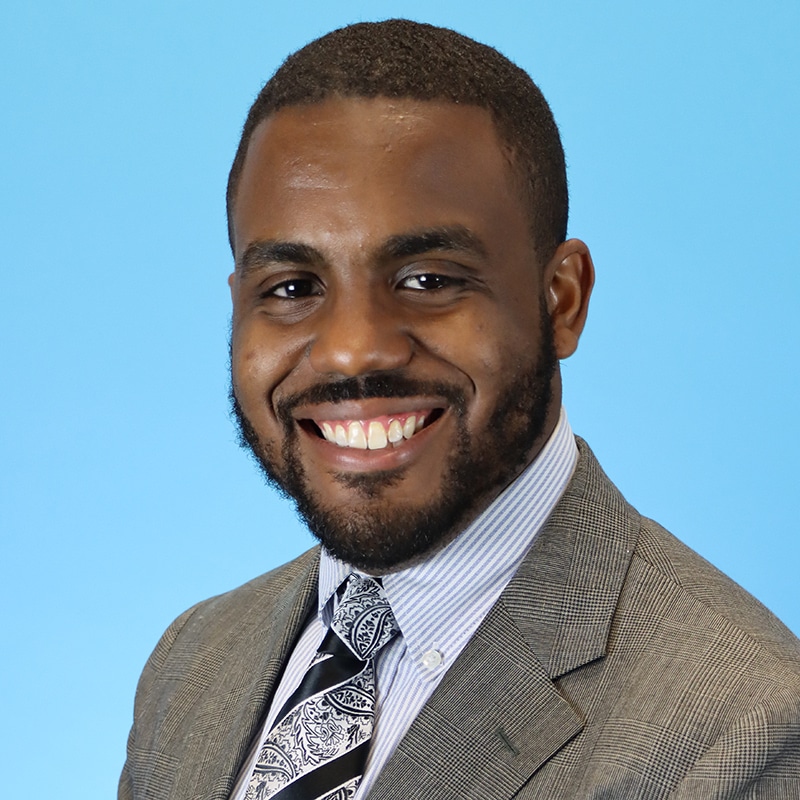
[00:00:48] Rico: Hey Karl, great. Looking forward to this interview right now with Brian.
[00:00:53] Karl: Absolutely. We’re going to talk about what Partnership Gwinnett can do for businesses locally here in Gwinnett county, and Georgia overall. But let’s talk a little bit about our sponsors today.
[00:01:04] Rico: Sure. So Peachtree Corners Magazine is supporting this podcast along with the family podcasts that we do. And we just put our last issue to the printer. It’s coming out in about two days. So keep an eye out for it. Go to LivinginPeachtreeCorners.com and you’ll see the digital version of that print edition that will be coming out this week.
[00:01:24] Karl: Fabulous. Great job with the Peachtree Corner Magazine. Lots of great articles in there, keeping up with what’s going on locally. So I really appreciate all that information that’s shared through that. Today we are going to talk about what Partnership Gwinnett, one of the organizations within Gwinnett county can do to help business owners, large and small. Help drive economic development within the community. Today I’m honored to have Brian Dorelus, who is a project manager with Partnership Gwinnett to talk a little bit about some of the mission of the organization, some of the successes and some of the things, resources that are available to business owners to help them with their businesses. Hey, Brian, how are you doing today?
[00:02:09] Brian: Doing good. Just trying to stay dry in today’s rainy weather, but doing good.
[00:02:14] Karl: Absolutely. No, I appreciate you joining us today. Why don’t you start by introducing yourself to our audience and tell a little bit about yourself and what you do with Partnership Gwinnett.
[00:02:25] Brian: Of course. Thank you. So once again, my name is Brian Dorelus. I’m the project manager for technology and life science with a focus and concentration in entrepreneurs and small business here at Partnership Gwinnett. And Partnership Gwinnett for those of you who might not know is the economic development agency for Gwinnett County. So it’s our job and our privilege to wake up every single day to recruit, retain, and expand industries in our five target sectors. And then as I mentioned, I lead the initiatives for technology and life science, but my counterpart leads the manufacturing and supply chain sector. And our leadership leads the kind of bigger corporate headquarters relocation projects. And so what we do every day is just provide resources and be a one-stop shop for companies big and small, so they could continue to grow in our community. And then prior to this, I was actually a Peace Corps Volunteer at the Republic of Moldova doing very similar work. Doing economic activities with a local mayor focusing on infrastructure and capacity building with the local village that I was stationed at.
[00:03:29] Karl: Oh, that’s fabulous. I’m going to jump in with the first question and thanks for the introduction for Partnership Gwinnett. Can you describe a little bit about how you work with business owners? And I would also guess some of the other city economic development departments, to help support thriving businesses in our communities.
[00:03:48] Brian: Yeah, definitely. So one thing we do is we try to give a concierge level service to businesses and companies in our communities, within our 16 cities. So typically on average day I work with the local economic development managers or city managers in each one of our beloved cities. And just hear about some of the issues that some of our businesses, large and small, are facing and trying to connect them with resources that typically they might not be aware of. And one of the good things about Partnership Gwinnett, is that all of our services are free and complimentary. So if you’re looking for research data, or looking to get connected, or even needing help with business plans or getting exposure. If we can’t do it, it’s our job to hunt down a person who can do it for you.
[00:04:34] Karl: I’m curious, when you think about Metro Atlanta and Gwinnett County, what’s the selling point for businesses to come and thrive here in this community? What have you found to be some of the things that really attract large and small businesses to Gwinnett?
[00:04:50] Brian: I think typically we have some, big pieces of infrastructure and systems in place that make businesses thrive. One obviously being the airport. Being the busiest airport and being two hours flight from all major airports, it really helps the interconnectivity between us locally and internationally, between places of business. But on a more maybe personal and cultural aspect, one thing that Georgia has and in Atlanta that really stands apart is that we are just pro-business and a friendly environment. Ironically, I had a lunch with a couple of international prospects. They literally said the first thing they said that to other international companies is that Georgia is nice. Which you would think is a weird selling point. But I would say as a community, we really have thrived because we’ve worked together really well with other partners within our community, within our cities, and across the Metro Atlanta region.
[00:05:47] Karl: So, when you think about Atlanta and how it’s grown since the Olympics over the last 20 odd, 20 plus years, where do you see industries that are really starting to thrive in the Metro Atlanta region?
[00:06:01] Brian: Just a little more about my background, I went to Georgia State University downtown. I was able and fortunate to see that growth happening almost before my eyes. And so some of the industries that just appeared and blossomed, we can’t talk about Atlanta without talking about FinTech. The financial technical center, it’s called the FinTech capital of the world, just because there’s so many FinTech companies located here. So when you think about entertainment, FinTech, conjoining with the tech ecosystem here, it just became a natural boom. Because I guess before, if you look at Georgia and in Metro Atlanta, we was a huge manufacturing sector. And we still are. When you think of Georgia, you cannot not highlight some of the manufacturing pieces. But within the past 20 years, you’ve just seen a huge boom and kind of major corporations coming to find that talent for that tech pieces and engaging the new generation. With just the amount of startups that are appearing and them just engaging into the market.
[00:06:59] Karl: So I know locally here in Peachtree Corners, Atlanta Tech Park, and in this area there’s been a thriving tech community that’s been developing here. Can you tell us a little bit about some of the past and current activity you’re seeing in this part of town?
[00:07:17] Brian: Yeah, definitely. One thing Peachtree Corners has done really well, is really brand themselves as a city of the future. And a city to engage the technology, not existing today, but existing or will be in a market 10, 15 years from now. So when you think about Peachtree Corners in particular, and some success stories, they’ve branded themselves as I mentioned that city of the future by engaging with that 5g technology or the internet of things. Which is the interconnection between everyday appliance into the interweb. And just because they have made themselves the centerpiece and the tip of the spear in that, now companies are searching and looking to be a part of just kind of the platform and the energy here. And that’s not even talking about that autonomous vehicle track that’s been deployed in Peachtree Corners and what they’re doing with electric vehicles and self-driving cars.
[00:08:12] Karl: Yeah. I know that we’ve heard an announcement about a company that’s really expanding in the surgical, medical space here. Can you share with us just a little bit about that and how does something like that come about? And what role does Partnership Gwinnett play in helping make things like that happen?
[00:08:29] Brian: Yeah, definitely. We were brought in very early into their project as the company Intuitive Surgical was looking to expand and grow. And for those who might not be familiar, Intuitive Surgical is the creator of the DaVinci robot. The small robot that does surgery on individuals. And I’m not gonna lie, I will be the first to admit that I was hesitant to think about having someone perform surgery on me that isn’t a human body. But once you’ve seen the application and seen the success rate and seen what they’ve developed. You just wouldn’t go back to human hands. And so Partnership Gwinnett, in collaboration with the local city administration in Peachtree Corners, and then with our state partners all worked together, hand by hand. And kind of stepping forward, of bringing the company here. And just kind of doing what we do every day, is telling the story of Atlanta and Gwinnett County. Explaining that the workforce here, one thing that’s great about Metro Atlanta, is that we actually graduate more engineers than any other region. So telling them about the great work that’s done at Georgia Tech and Georgia State and Kennesaw, and SCAD. And then combined that with the quality of life then a few corners in the, some, the other innovation hub across the street, across Wynette county, it was a no brainer. And, we really just work well with our community partners, with the local administration. And we brought all the resources kind of bundled together and made a compelling case that, eventually, they decided that this is where they want to be their new home. So it was our team in congruence with everybody else. And we worked hard for this past summer to land a plane. And we’re proud to say that they’ve opened and it’s one of the largest projects in Gwinnett County history.
[00:10:05] Karl: Wow. That’s fabulous, the work that’s being done and seeing so many people playing a role, working together to make that happen. If I could ask a little bit around your area of specialty, when you think of startup companies, technology companies, and so on. What are some of the things that you see that can help bring more of that? How does that work to get more of that ecosystem developed here in greater Atlanta and Gwinnett County in specific.
[00:10:33] Brian: I think when people typically think of startups, there’s a little divide and there’s a lot of misconceptions on what startups will need and what they’re looking for. And the first thing that startups themselves and other people sometimes get wrong. Is that they’re looking for capital, they’re looking for funding. And everybody’s looking for funding. But one thing that we have here in Atlanta that really pushes the needle for these startups to grow is something that I mentioned earlier, it’s that just the interconnectedness between all parties and that mentorship and exposure. We’re in an ecosystem where generally speaking it’s pretty close knit. Even from Gwinnett to Atlanta or from Gwinnett to our community partners. It’s a small knit community where transportation time isn’t that far. And so when talking to these startups thinking about relocating or growing, we just tell him like, Hey, this is an area where innovation is booming fast. Innovation comes from areas where there is a problem and there’s someone looking to solve. And Gwinnett County has set themselves apart, being that problem solution for a lot of the world societal problems. And so these startups, they come here and they find a lot of success and become leaders very quickly because of that.
[00:11:42] Karl: Can you tell us a little bit about any specific startup that you’re watching, some exciting stuff that’s going on? Just to give people a feel of the activity that’s happening here.
[00:11:54] Brian: I could tell about some startups, but even some innovation hubs that we have where these startups are breeding. If we’re looking back on in your neck of the neighborhoods in Peachtree Corners, there’s a lot of startups that are focusing on 5g and cyber security. And one of them that their common conversation is Smart Eye Technology using that retina scanning to scan for security purposes for documents or providing cybersecurity solutions to municipalities. And especially with security and data breaches being something that was talked about maybe 10 years ago, but now being a necessity, these companies, these startups are becoming the face of what it means to protect yourselves in a new digital age. Kind of as you go up Gwinnett County, you have the water tower, which is a water innovation hub. Innovation hub, actually more of an innovation campus, if you really think about it. It’s an area built solely for the innovation of water development technologies and water workforce. And there’s just so many exciting water startups there from providing clean water to the masses using hydro stations that could tell you, not only the level of certainty how clean it is, but pull data about your current water usage and scan for that. To even some startups working on trying to gather water from solar panels. And then if you kind move across from the water tower, up north all the way up through 16 is kind of the biggest and largest innovation hub, which is called Rowan. Recently in Gwinnett county just purchased 2000 acres to build this kind of life science community. Life science community focusing solely on renewable energy. That life, science, and agriculture. And you can most accurately think about it as like adjacent or something very similar to what you see at the Research Triangle Park. And there’s something so similar that we’ve actually hired the COO of Research Triangle Park to run the Rowan foundation, to lead to that development. And so while the development is still ongoing, since it’s such a massive project for Gwinnett County, we’ve just engaged a lot of startups and larger corporations.
[00:13:55] Karl: Gotcha. I’m curious when you’re talking about some of these innovation hubs and so on, what are some of the things that make us more attractive than other cities around them? What infrastructure is in place that entrepreneurs and tech folks can come to Gwinnett County and leverage?
[00:14:13] Brian: One of them is just the level of service that we offer here at Partnership Gwinnett. As I mentioned a little briefly, we like to call ourselves, community connectors. So they’re kind of, the one-stop shop. So we have partners at score or SBDC or SBA and ACE capital who are willing to sit down with these entrepreneurs on one-on-one, and give them that service and that training they need to find capital. To find exposure, to find that mentorship that could really take them to the next level. But also we’ve got some, a lot of resources just around a region that provides that same level of service at very little to no cost. And one thing that’s, the best thing about Gwinnett that’s also sometimes may be the worst thing about Gwinnett, is that it’s so big that entrepreneurs don’t know where to go. And so we could help them point to that direction.
[00:15:02] Karl: Now I wanted to talk a little bit of specific resources. So if I’m thinking of starting a business, whether I’m a CEO of a large company looking to expand into the Southeast, or I’m a tech company, that’s looking to establish operations here locally, what are some of the specific resources and tools you have that I can come to and get help with that most people may not know about?
[00:15:25] Brian: And if you, as a small business, I would actually first you come to me as the, kind of the first level of inquiry, just get some general questions. And then what we’ll do from that process is kind of. direct you to the next staff. And you could think about this as almost as stages. So first the Gwinnett Chamber of Commerce would be the first step, just to network. The community here and all the businesses that’s under that umbrella can really help you brandish yourself and find the market that you’re looking for. And then after that, we’ll probably divert you to Score. Which is an organization built from volunteers to help you with your business plan. To help you figure out what your target market is, what’s your SWAT analysis, who are you trying to aim for and kind of really solidify and drill down your kind of needs for your business. And then depending on your type of business and depending on if you’re a startup, we also have an Angel Investment Network. Where, similar to what Shark Tank has become, you can apply and pitch to Angel investors who are looking desperately trying to invest in startups in the region. To kind of find that next unicorn status startup. So there’s just a bunch of resources here between a lot of the agencies here that can really help you go to the next level.
[00:16:40] Karl: What if I’m a large company and I wanted to move here locally? What are some of the tools and resources available for people that are helping with that type of search?
[00:16:49] Brian: Well, if you’re a large company, the first thing you’re looking for is space. Where am I going to have my production facility? Where am I going to house my employees? Even though you might be an office, there’s the trend of working from home. You want a place where you can build that company and culture. And so one of the things we do is connect you with, well first find a property that kind of fits the parameters of your needs and connect you with our network of brokers. And then after that, pull some data and research into, where’s the best place for you? Are you looking for somewhere close to the airport or close to a major interstate? Or are you looking for a place where the city is, has a lively festival culture? And so we really work hand in hand to make sure that we find a facility for you. And then after that we pull research, we pull our state partners to help with the tax incentives that companies all often qualify for creating new jobs in our region and putting in capital investment. And then after we kind of helped you relocate you, your company, your employees, and their families. We like to do a grand opening and press release to kind of welcome you in the community. And we’ve seen some press releases that have gone and grand openings that are just minuscule. They just want to let the community know they’re here. And then we’ve also seen ones that want to do a whole festival. They want to have a ferris wheel and a barbecue. And what we try to do is have the elected officials, key stakeholders, people in the community that fits the needs and people that you want to get in front of, all at your grand opening. Just to show that the community is here for you. And then after that, it’s not after you’ve landed that we’re just done with you. One thing we always say is that one of the good things about us, that once you find us, we’re always going to be contacting you. So you then after kind of move into our retention program, where we have our director for business retention and expansion kind of keep our eye on you. Do checkups and just make sure that you’re growing and expanding. One of the services that we offer of course, is helping with permitting needs. So if you’re a company here located and you have some permitting concerns, or it’s just trouble getting someone in contact, or you need a Fire Marshall to do a quick survey of your building, we can help facilitate and expedite that process for you.
[00:19:03] Karl: If there was one thing that you, from your perspective, would really leapfrog Gwinnett County into the clear leader for companies of all sorts. What kind of infrastructure improvement would you say would need to be here, put in place so we could develop over the next five to 10 years to really become that easy decision for businesses to come and play here?
[00:19:29] Brian: It would be hard to say, because I feel like a lot of the things that Gwinnett County is already working on. So one thing typically that we’ve talked about internally in our offices, that quality of life piece. But one thing Gwinnett County it’s already one step ahead of me. Is that, you know, one thing of our 16 cities is all of them are developing their downtown area. Downtown Suwanee is very different than downtown Peachtree Corners or downtown Norcross or downtown Lawrenceville. But they all have bubbly activity. And it’s those little key pieces that are really important to the companies that are relocating. Because you have to remember, they are people too. These companies are comprised of people and of employees. And after work, they also want to unbutton their shirt and grab a beer or go to a beer garden. So just having a community that has activities, not only for the older generation, but even for the millennial generation as well. So for them to build their families. And Gwinnett County has led the way in developing that. So I would say, as for Gwinnett County it has continued to grow, we have almost a million people as a population is just to further develop. And redevelop. Which has become a huge thing in economic development, it’s redevelopment. And it’s something Partnership Gwinnett has now taken a role into is redeveloping old areas that have been long forgotten and making those areas of attraction and beauty and entertainment. Where family meets, and friends, and coworkers, and millennials, all alike can kind of enjoy the services.
[00:20:58] Karl: You know, reinvention is always a key part of rebirth. Reinvention, being able to do that. I’m curious, Brian, is there anything coming up that, what are you working on? What are some of the things that are coming up where people can engage in the community around Partnership Gwinnett?
[00:21:14] Brian: Yeah, definitely. One thing that I’ve been working on with my team is how to provide more resources to entrepreneurs. There seems to be a little bit of a gap between small and medium sized businesses and entrepreneurs to the larger corporations. So one thing that we’re working on is how to bridge that gap. How to match make where, a small business can apply to be a subcontractor for a larger company and incorporation. And see, that’s the thing that we’re hoping to try to roll out as a program or a database where larger corporations, not only in Gwinnett County but in general, a large corporation can have our RFI and these small businesses could apply. Can go to the website, apply, and to be awarded I guess a small subcontract work where they could work and kind of bridge the gap. As one thing, working in technology innovation is, innovation definitely comes from within. And it also comes with collaboration with other partners. So we’re actively looking at different ways and methods for that to happen.
[00:22:12] Karl: Oh, fabulous. Well, Brian, I want to thank you. How can people reach you? If they wanted to reach you, what’s the best way to contact you?
[00:22:19] Brian: Yes. Best way to contact me is go on our website, www.PartnershipGwinnett.com, going to teams and under my profile of Brian Dorelus. Or you can go on LinkedIn and reach me there. Or you can reach me by email at BDorelus@ParntershipGwinnett.com.
[00:22:38] Karl: Oh, that’s fabulous. Well, you know what, I want to thank you, Brian. For everybody that is joining us midway, this is Brian Dorelus of Partnership Gwinnett. Sharing some of the exciting things that are happening here in Gwinnett County, and Metro Atlanta, and here in Georgia. From on the small side entrepreneurs, startup community, the resources and the help that they’re bringing to the local cities as well as business owners. But also how they’re bringing large companies into the areas, working collaboratively, across many different stakeholders to make those things happen. Thank you so much for sharing some of the insight and introducing yourself to the local business community. Thank you, Brian. Thank you very much. And I’m Karl Barham with Transworld Business Advisors of Atlanta Peachtree. Our business advisors are available to help consult business owners, connect them to folks like Brian and other people in economic development. And if you’re looking for real estate, commercial real estate, et cetera, we have a network of folks that can help people. And also if you’re looking at planning for your business growth through acquisition, if you’re looking at doing something else, we help with business sales and business exiting planning. If you want to contact me, you can reach me at KBarham@TWorld.com. Or visit our website, www.TWorld.com/AtlantaPeachtree. We’re here in the community to help. Rico, why don’t you tell us a little bit about what you’ve got coming up?
[00:24:04] Rico: Sure. Sorry about, I’ve been acting more as an engineer on this episode than anything else. But we just went to press with the printer in Monroe, Georgia. To do a shout out to Walton Press. They do a great job of printing the publication. We’re at 88 pages this issue, the largest issue we’ve had since we started over two years ago. Lots of stuff in it. And the lead feature story is actually about the people that run the day-to-day activities, the five department heads of the city of Peachtree Corners. So it highlights them. Also, Judy Putnam is profiled in there. She’s the communications director who’s retiring. And we have a new communications director that will be taken over shortly. And a lot of other stories in there along with photographs from Peachtree Corners Photography Club. They did a great fall-ish photo spread for us. And it’s also the pet issue. So lots of pet pictures and the end of the giveaway that we’ve run for the last four or five weeks. So check that out and you can actually see the digital edition online at LivingInPeachtreeCorners.com. Other than that, Mighty Rockets is my company as well. A publisher of Peachtree Corners Magazine, the purveyor of these podcasts and other marketing and product videos that we do for clients. So check that out. And if you need to reach me, it’s Rico Figliolini on LinkedIn. You can get me there. I’m probably the only Figliolini short of two others that are my siblings, if you find them. So Figliolini just checked that out and you can reach me.
[00:25:32] Karl: And I would be remiss if I didn’t mention, if you want to keep up with what’s going on locally, multiple ways to follow us. Follow us on Facebook. What are some of the other ways that folks can hear the podcast and follow what’s going on locally?
[00:25:46] Rico: Sure. So the video podcast, if you go to Peachtree Corners Life on Facebook or the Capitalist Sage on Facebook, there’ll be streams. We always stream those as a simulcast live stream. Search YouTube channel for Peachtree Corners Life. You can subscribe there and you’ll get notified when we go live on the simulcasts. And if you’re looking to audio podcasts, anywhere that you find the podcast, right? I Heart Radio, Spotify, Apple. Anywhere that you find audio podcasts, you can find us. Just Google the Capitalist Sage Podcast and you’ll pick up all sorts of resources that way.
[00:26:19] Karl: Absolutely. Thank you for that. And the last thing I’ll mention, if you have ideas for stories and articles, is there a way for folks to send that in to you Rico?
[00:26:29] Rico: Great, great question. Thank you. You can send any story, any ideas that you have suggestions to Editor@LivingInPeachtreeCorners.com. And if you’re thinking it’s going to be a great subject matter for the Capitalist Sage Podcast, certainly reach out to that email as well. And we’ll be able to talk to you a bit about that. And quite frankly, let me do this as well. If you’re looking to advertise or be a sponsor of the family of podcasts that we do, which includes the Capitalist Sage, Peachtree Corners Life and Prime Lunchtime with the City Manager, which is a monthly podcast, reach out to me at Editor@LivingInPeachtreeCorners.com.
[00:27:08] Karl: Excellent. How many homes do you reach currently with the magazine?
[00:27:11] Rico: We mailed 19,700 homes, households, get the magazine. And then another 1200 out to about a hundred locations.
[00:27:20] Karl: Lots of reach there.
[00:27:22] Rico: Oh, for sure. And more online because of the digital edition as well. And the weekly newsletters and website and all that, sure.
[00:27:30] Karl: Absolutely. Well, Rico, thank you very much. And for everybody that joined us today, thank you for supporting and watching the Capitalist Sage. We’re going to continue to have great topics for business owners and for people in the community. Let’s talk about business. Well everyone have a great day. Take care.
[00:27:46] Rico: Take care guys.
Related
Business
Peachtree Corners Grows Business Opportunities Through Economic Development
Published
3 days agoon
May 6, 2025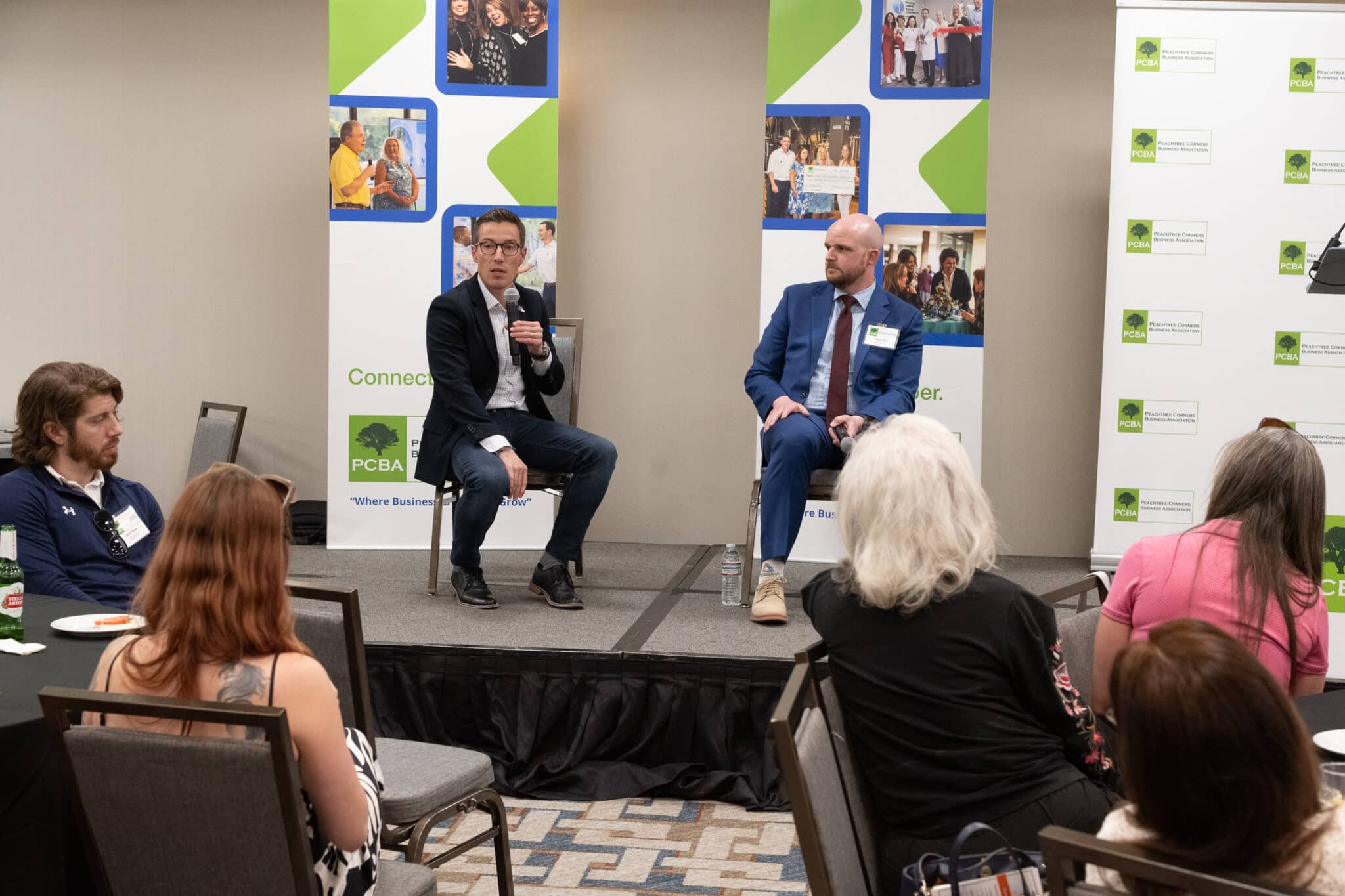
Most residents and business owners in Peachtree Corners probably think they know all about the economic development and strategic planning of Peachtree Corners, but do they really?
Peachtree Corners Business Association invited Peachtree Corners Economic Development Director Betrand Lapoire and Partnership Gwinnett Director of Economic Development Andrew Hickey to its After Hours Speaker Series on March 27 to discuss the city’s growth from a 1971 master plan to a bustling city with 42,000 inhabitants and 40,000 jobs.
Key points included the importance of business retention and expansion, with 24 projects last year creating 1,600 retained jobs, 1,600 new jobs and $250 million in new capital investment.
The Curiosity Lab, a world-class innovation center, was emphasized as a significant attraction. The city’s zoning and infrastructure plans were also discussed, focusing on balancing office and residential development to maintain a vibrant, sustainable community.
Matching jobs to residents
Although Peachtree Corners is just a teenager in terms of being an incorporated city, the foundation for this vibrant, fast-paced economic hub was laid more than 50 years ago by technology pioneer Paul Duke.
“Peachtree Corners was the first master-planned, business innovation technology park in metro Atlanta,” said Lapoire. “It was in response to the brain drain of technology with Georgia Tech graduates leaving the area.”
While the city may have a small-town feel, it’s the largest in Gwinnett County by population, but not land mass, he added.
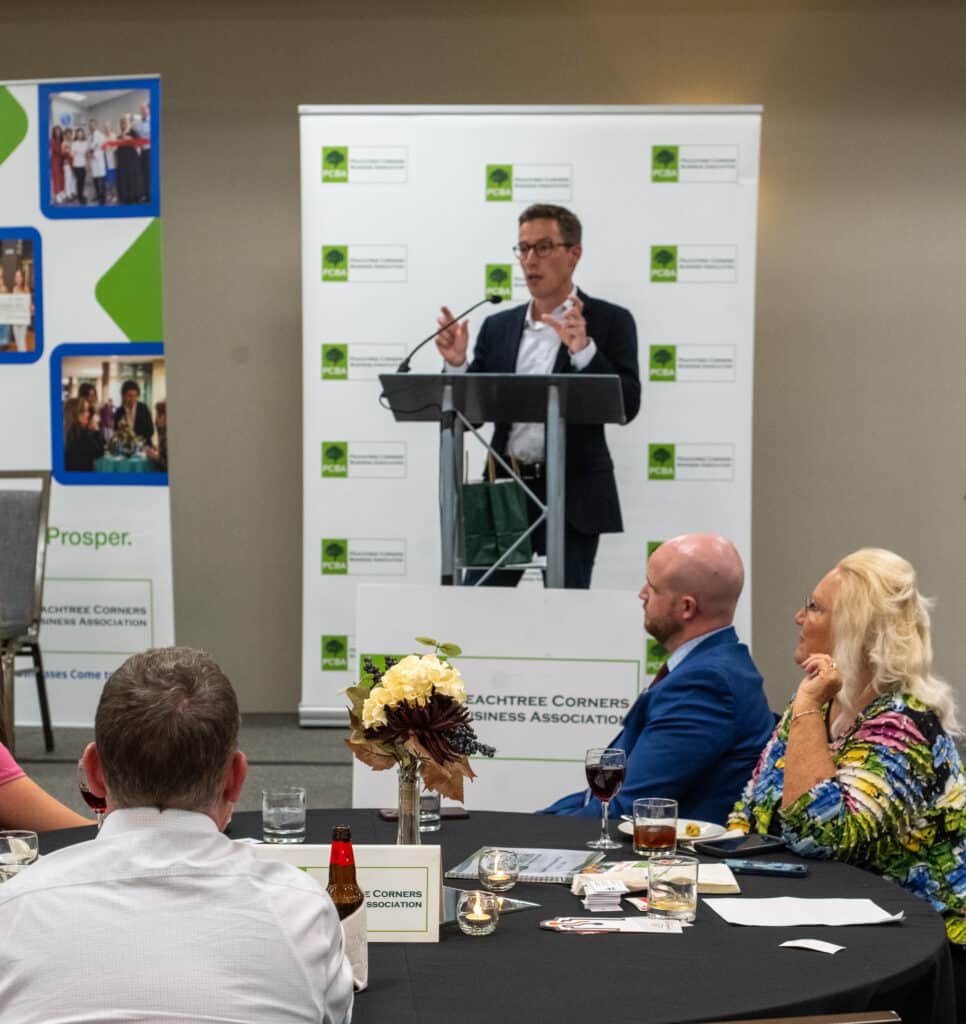
“The city started from a commercial, industrial, R&D base and then was expanded around it,” said Lapoire.
Though home to more than 42,000 residents, most of the jobs in Peachtree Corners are filled by people who live outside the city, he added.
“So we have this interesting mismatch, in a way, although not unusual,” said LaPoire. That creates traffic and transit issues. So that means that one of the solutions is to create more jobs here to fit the profile of the community.”
He presented charts that show professional services, consulting and engineering as the largest job categories. The next tier of businesses are wholesale and manufacturing.
“So we have a good mix of industry,” he said.
A five-year plan
The city has a five-year economic development plan (2023-2028) that outlines strategies for attracting and retaining businesses, with education and workforce development being key components.
Partnership Gwinnett has similar goals as Peachtree Corners, but on a larger scale.
“We are the county’s sales and marketing arm for all 17 cities now, and we receive funding from both municipal sources as well as existing businesses here — both in Gwinnett and outside of Gwinnett as well,” said Hickey.
He shared how Partnership Gwinnett is designed to drive a lot of major corporations toward doing business inside and with Gwinnett County.
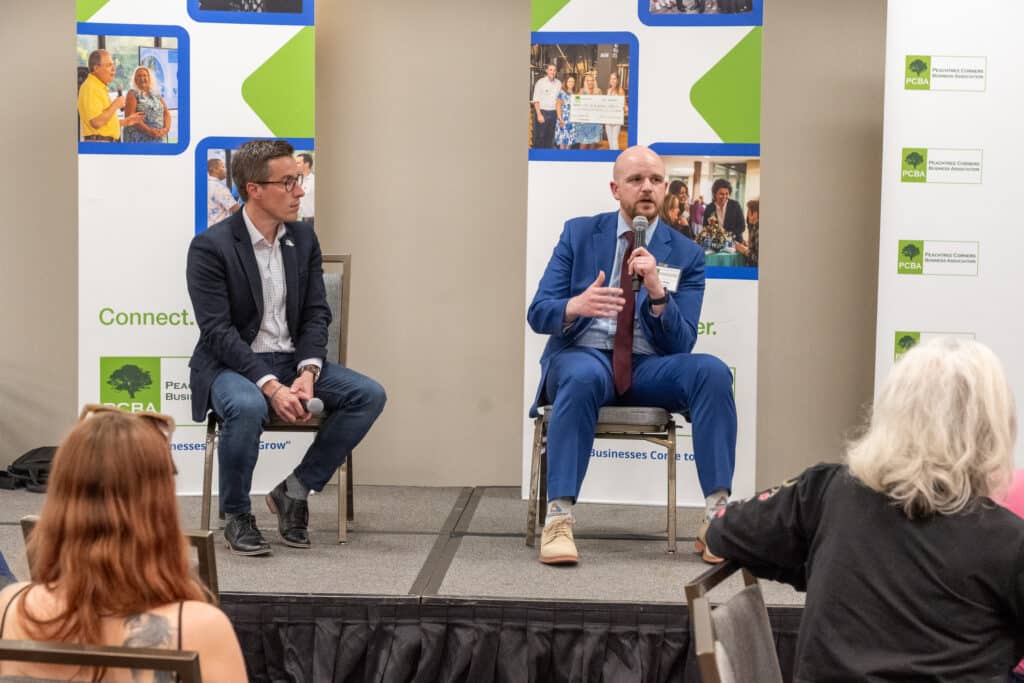
“One of the biggest things that we talk about that I’m sure it seems like most of us here, if you live here, you work here, you understand it. It’s the diversity that exists here in Gwinnett,” he said. “With a diversity index of 85, that means if we walk out of the Hilton here and we say hello to somebody, there’s an 85% chance they’re from a different ethnic or cultural background than ourselves, which to you and I may seem normal because that’s the life that we live in.”
He added that for companies, there’s a tremendous value in that, whether they have stated values, or they’re just making hiring decisions to get a wide range of candidates to fill those roles. Additionally, because of the proximity to Atlanta, Gwinnett County has a great labor draw.
Partnership Gwinnett
Partnership Gwinnett plays a significant role in recruiting businesses, expanding existing companies and developing the workforce. Hickey showed how the organization was involved with more than 24 projects last year.
“A majority of those were expansions, and that is a common thread you’ll see in economic development,” he said. “In business retention, expansion is so vital to working with our existing companies to make sure that they have the resources they need.”
He added that’s what leads to new investment and job creation in the community.
The organization also focuses on redevelopment projects, working with cities and the county to improve infrastructure and community amenities — especially strong educational institutions such Georgia Gwinnett College, Philadelphia College of Osteopathic Medicine and others.
Quality of life
In closing, both men stressed the importance of recruiting companies and developing the workforce, along with one aspect that means a lot but may not be as obvious — quality of life.
“It’s definitely evident that people like to work where they live — the whole live, work play experience,” said Hickey. “I joke that the part that people really have the most questions about, and are most excited to learn about, is new events at The Forum or Gwinnett Place Mall.”
Although they want to know what’s the next major company coming to Gwinnett, people REALLY want to know about how to spend their leisure time.
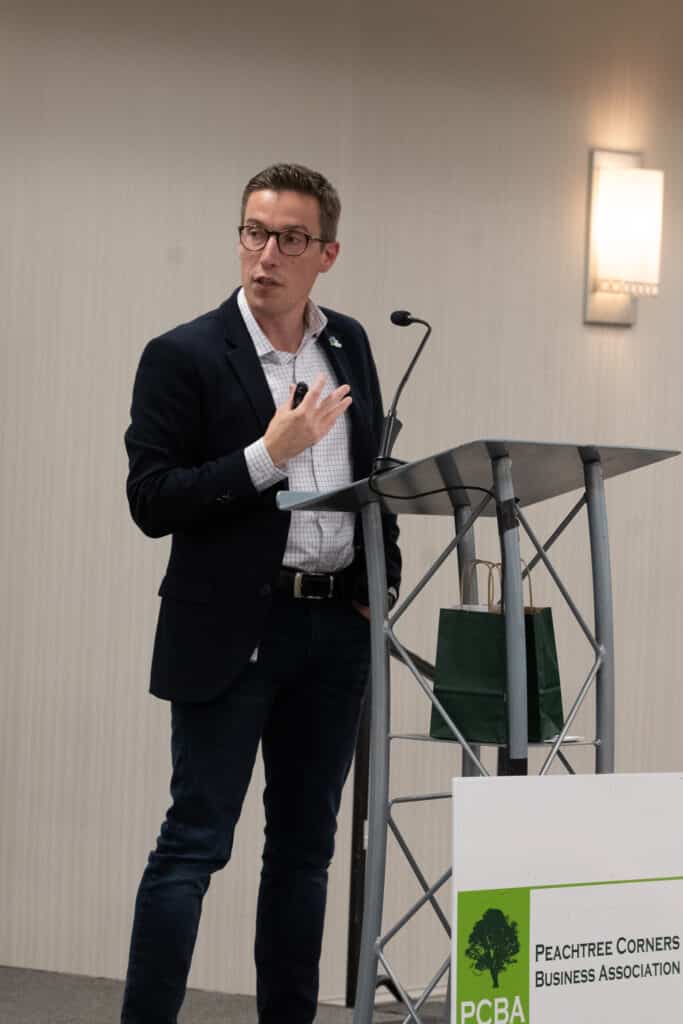
“That speaks to the importance of ensuring that we have a great community,” he said. “So at Partnership Gwinnett we work with all of our cities, and the county government as well, [on] a kind of a best-practices trip.”
He added that the peer tour allows everyone to know what the neighboring communities are doing and share the good news.
“We will take all of these elected officials, but also city staff, to different cities across the Southeast,” he said. “Last year, I believe they went to Huntsville, and have been to Greenville, Chattanooga — all cities that have done some really cool redevelopments that have taken their city to the next level. Our goal is to learn from them.”
Related
Business
Two Peachtree Corners Business Leaders Named Finalists for EY Entrepreneur Award
Published
2 weeks agoon
April 23, 2025
Ernst & Young’s Entrepreneur Of The Year celebrates ambitious entrepreneurs who are shaping the future
Ernst & Young LLP (EY US) recently announced the finalists for the prestigious Entrepreneur Of The Year 2025 Southeast Award, and two local, Peachtree Corners business leaders — David Quirk, president and CEO of DLB Associates Consulting Engineers PC and Erin Hanson, founder and CEO of Guardian Sports — made the list.
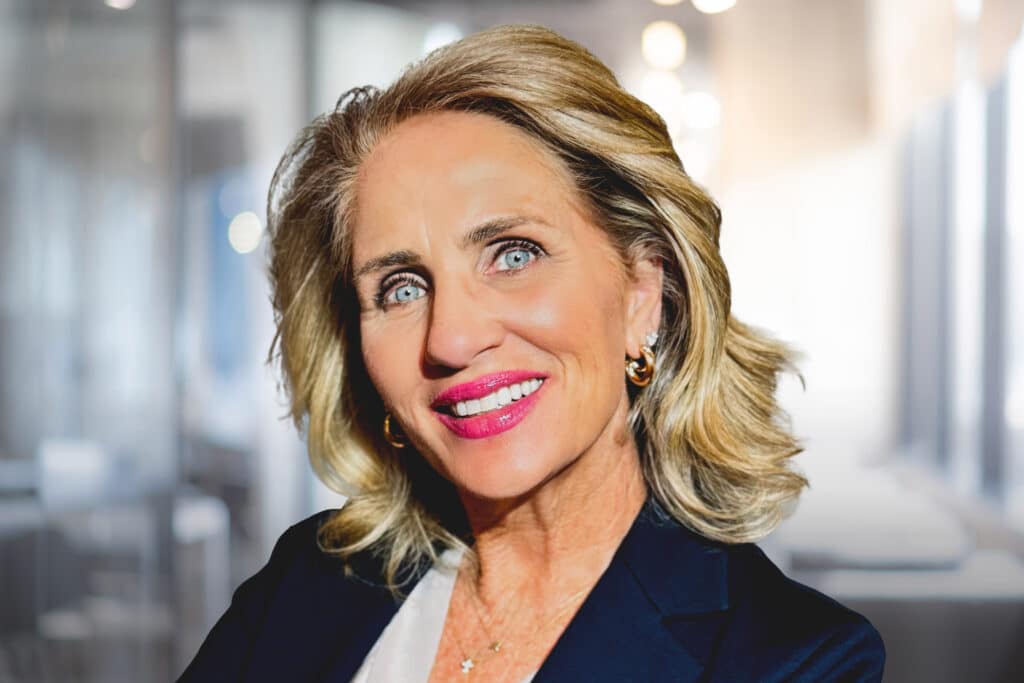
Hanson’s Guardian Sports is a family-owned company dedicated to serving athletes through safety and performance improvements in sports equipment. Major products include the Guardian Cap, PEARL ball and Guardian Infill serving the sports industry.

DLB Associates is a U.S.-based consulting engineering firm specializing in mission-critical and complex built environments. With more than 40 years of expertise, DLB delivers innovative, technology-driven solutions in engineering, commissioning and operations worldwide.
Celebrating entrepreneurial leaders
Now in its 40th year, Entrepreneur Of The Year recognizes the bold leaders who disrupt markets through the world’s most ground-breaking companies, revolutionizing industries and making a profound impact on communities. The program honors those entrepreneurs whose innovations shape the future and pave the way for a thriving economy and a hopeful tomorrow.
The Southeast program celebrates entrepreneurs from Alabama, Georgia, North Carolina, South Carolina and Tennessee.
An independent panel of judges selected 36 finalists for their entrepreneurial spirit, purpose, growth and lasting impact in building long-term value.
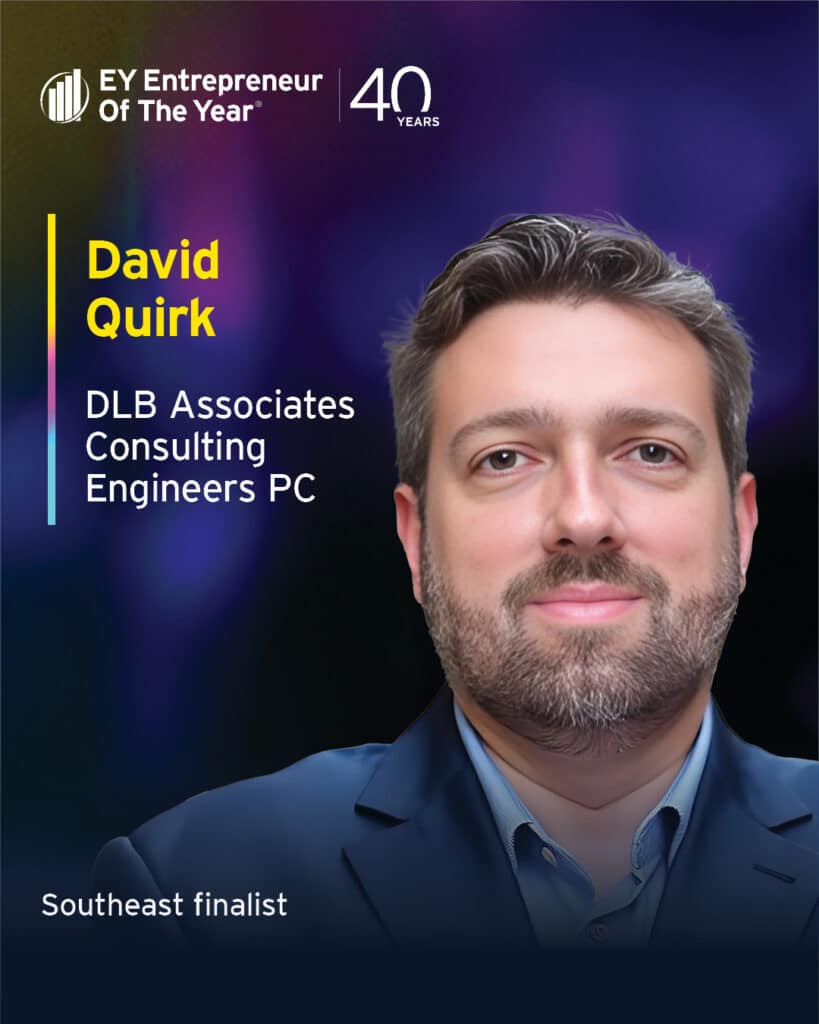

“This year’s finalists are leading examples of innovation, perseverance and resilience, illuminating paths to a brighter future for their industries and communities,” said Chevy Arnold, Entrepreneur Of The Year Southeast Program co-director.
“Their commitment to excellence transforms challenges into opportunities, inspiring us all,” added Kimberly Kicklighter, Entrepreneur Of The Year Southeast Program co-director.
Entrepreneur Of The Year honors many different types of business leaders for their ingenuity, courage and entrepreneurial spirit.
The program showcases original founders who bootstrapped their business from inception or who raised outside capital to grow their company; transformational CEOs who infused innovation into an existing organization to catapult its trajectory; and multigenerational family business leaders who reimagined a legacy business model to strengthen it for the future.
Including Quirk and Hanson, the 2025 Southeast finalists are:
- Marc Hodulich | 29029 | Atlanta, Georgia
- Damon Stafford | Alpine Intel | Charlotte, North Carolina
- Lou Hensley | Aspida | Durham, North Carolina
- Matthew Dent | Buffalo Rock Company | Birmingham, Alabama
- Melanie Little | Colonial Pipeline Company | Alpharetta, Georgia
- Will Bartholomew | D1 Training | Franklin, Tennessee
- Rene Diaz | Diaz Foods | Atlanta, Georgia
- David Quirk | DLB Associates Consulting Engineers PC | Peachtree Corners, Georgia
- Markus Scott | EyeQ Monitoring | Atlanta, Georgia
- Jon Gosier | FilmHedge | Atlanta, Georgia
- John Fitzpatrick | Force Marketing | Atlanta, Georgia
- Dr. Barry Patel | Galt Companies | Atlanta, Georgia
- Dr. Wade Smith | Galt Companies | Atlanta, Georgia
- Charles Gillespie | Gambling.com Group | Charlotte, North Carolina
- Kevin McCrystle | Gambling.com Group | Charlotte, North Carolina
- Mike Griffin | Griffin Brothers Companies | Cornelius, North Carolina
- Erin Hanson | Guardian Sports | Peachtree Corners, Georgia
- Dan Beem | Hissho Sushi | Charlotte, North Carolina
- Aaron Siegel | Home Team BBQ | Charleston, South Carolina
- Marc Murphy | Ignite Digital Services | Charleston, South Carolina
- Miller Chalk | Inglett & Stubbs, LLC | Mableton, Georgia
- Liza Rodewald | Instant Teams | Southern Pines, North Carolina
- Stephen Andresen | McClancy Foods & Flavors | Fort Mill, South Carolina
- Travis LeFever | Mission Mobile Medical Group | Greensboro, North Carolina
- Cyrus Mojdehi | Northway Homes | Charlotte, North Carolina
- Connor Ryan | NutraSky | Alpharetta, Georgia
- Fritz Owens | OTR Solutions | Roswell, Georgia
- Christopher Chuang | Relay, Inc. | Raleigh, North Carolina
- Kurt Jacobus | restor3d, Inc. | Durham, North Carolina
- Tom Kendrot | Shearwater Health | Nashville, Tennessee
- Teak Shore | Southern Lighting Source | Cumberland, Georgia
- Cindy Eckert | Sprout Pharmaceuticals | Raleigh, North Carolina
- Bryan Moore | TalkShopLive Inc. | Nashville, Tennessee
- Tina Moore | TalkShopLive Inc. | Nashville, Tennessee
- Igor Marinelli | Tractian | Atlanta, Georgia
- Joan Butters | Xsolis | Franklin, Tennessee
You can learn more about the finalists at ey.com/en_us/entrepreneur-of-the-year-us/southeast/winners-finalists.
Regional award winners will be announced on June 25 during a special celebration. The winners will then be considered by the national independent panel of judges for the Entrepreneur Of The Year National Awards, which will be presented in November at the annual Strategic Growth Forum®, one of the nation’s most prestigious gatherings of high-growth, market-leading companies.
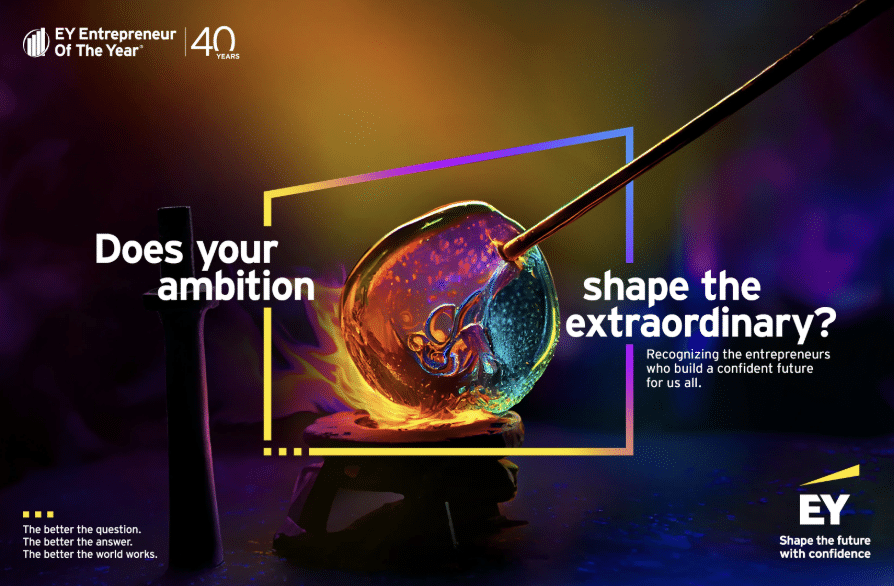
About Entrepreneur Of The Year
Founded in 1986, Entrepreneur Of The Year has celebrated more than 11,000 ambitious visionaries who are leading successful, dynamic businesses in the U.S., and it has since expanded to nearly 60 countries globally.
The U.S. program consists of 17 regional programs whose panels of independent judges select the regional award winners every June. Those winners compete for national recognition at the Strategic Growth Forum® in November where national finalists and award winners are announced.
The overall national winner represents the U.S. at the EY World Entrepreneur Of The Year™ competition.
For more about the award, visit ey.com/us/eoy.
Related
Business
SCB Construction Group Partners with CGA Reps on New Peachtree Corners HQ
Published
3 weeks agoon
April 15, 2025
SCB Construction Group, freshly rebranded from SteelCo, secures construction project with CGA Reps for new office HQ in Peachtree Corners
SCB Construction Group has announced a strategic partnership with CGA Reps to build a new office headquarters in Peachtree Corners. The project, encompassing approximately 26,000 square feet of innovative workspace, marks a significant milestone in advancing CGA Reps’ corporate vision while showcasing SBA Construction Group’s commitment to delivering transformative construction solutions.
In collaboration with Oakley Real Estate Partners — serving as developers of the project on behalf of CGA Reps — this venture reflects a united effort to bring cutting-edge design (from Smallwood architecture firm) and operational excellence to the commercial kitchen equipment industry.
The announcement follows several high-profile projects for SCB Construction Group in 2024, including a 72,500-square-foot manufacturing center and headquarters for Process Equipment & Controls, an impressive interior build-out for Courtesy Ford Conyers’ commercial service center and the Phase 1 completion for StoreEase Loganville — recently honored as a 2024 Smart Facility of the Year by Modern Storage Media.
A bold new chapter for CGA Reps
The new 25,890-square-foot headquarters is designed to be more than just a workplace — it is envisioned as an inspiring environment that serves both client engagements and employee creativity. CGA Reps is recognized as an industry expert in commercial kitchen equipment, representing leading manufacturers, warehousing, distributing and installing everything from fryers to commercial walk-in freezers.
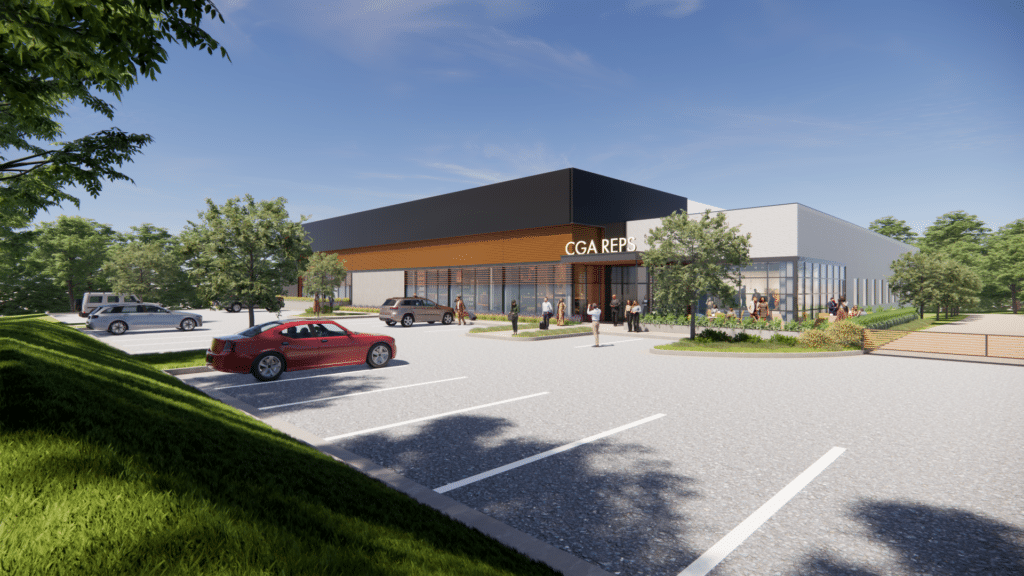
The facility’s design reflects this expertise, featuring a dedicated approximately 9,000-square-foot showroom kitchen that will host equipment demonstrations, tradeshows and webinars. This dynamic space will allow CGA Reps to showcase its comprehensive product range and provide clients with hands-on experiences of the latest commercial kitchen innovations.
A standout feature of the project is its innovative approach to stormwater management. With the site comprising only three acres, sufficient space for a traditional detention pond does not exist. To overcome this challenge, the design includes an underground detention system located beneath the truck court to efficiently handle all stormwater runoff.
This solution not only maximizes the use of the available land but also reinforces CGA Reps’ commitment to sustainable practices.
“We are excited to embark on this project with CGA Reps,” said Jay Bailey, CEO of SCB Construction Group. “This partnership underscores our commitment to customer excellence in design and construction, and it is a testament to the trust our clients place in our ability to deliver projects that not only meet but exceed expectations.”
Delivering excellence through proven expertise
SCB Construction Group’s track record in 2024 has been nothing short of remarkable. Earlier in the year, the company completed a 72,500 square foot manufacturing center for Process Equipment & Controls, integrating office space within a dynamic production facility.
This project was celebrated for its innovative design that balanced operational efficiency with a modern aesthetic, utilizing IMP panels to mimic tilt-up concrete, setting new standards for manufacturing environments.
Similarly, the interior build-out for Courtesy Ford Conyers’ commercial service center demonstrated SCB Construction Group’s ability to transform conventional spaces into functional and attractive environments that cater to both customer and staff needs.
The company’s commitment to quality and precision was again evident in the successful Phase 1 completion for StoreEase Loganville. This project, which recently earned the distinction of a 2024 Smart Facility of the Year by Modern Storage Media, highlights SCB Construction Group’s forward-thinking approach to construction and design, incorporating smart technologies and design that enhance sustainability and operational efficiency.
A rebranding that reflects a vision for the future
In a move that signals its evolution and growth, SCB Construction Group has recently rebranded from its former identity, SteelCo Buildings, as it spins off its construction division. This strategic rebranding is not merely cosmetic — it represents a renewed commitment to capabilities, credibility and client-focused service.
The refreshed brand is anchored by a new tagline “Deep Expertise, High Expectations” and a clear brand promise that communicates the company’s mission: to craft exceptional construction experiences based on precision, innovation and trust.
“Our rebranding is about more than just a new name or logo; it’s a renewed promise to our clients and communities,” explained Robert Lee, marketing director at SCB Construction Group. “We believe that our updated brand identity, including our invigorated tagline and mission statement, encapsulates our dedication to pushing the boundaries of design and construction. It reflects our commitment to creating spaces that are as inspiring as they are functional.”
Transforming spaces to inspire and connect
The new headquarters for CGA Reps is expected to become a landmark facility in Peachtree Corners. Beyond its impressive architectural design and advanced construction techniques, the building is planned as a hub for innovation and collaboration.
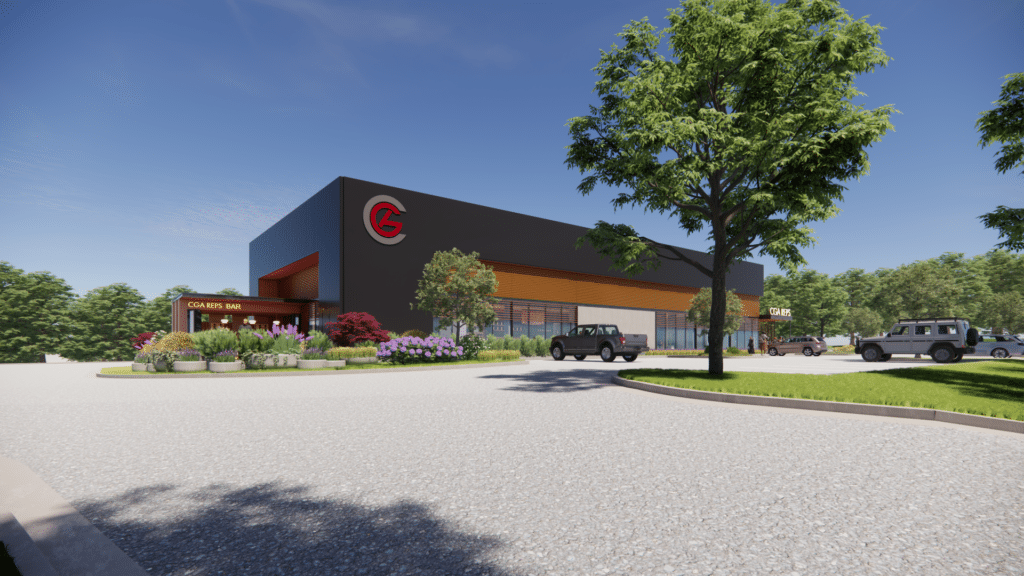
The interior build-out will include dynamic client reception areas, interactive meeting rooms, and dedicated spaces designed to foster creativity and teamwork among employees. The layout is crafted to ensure that every area of the facility contributes to a productive and inspiring work environment.
“By investing in this state-of-the-art facility, CGA Reps is making a strong statement about the future of work,” said Bryan Young, VP of construction at SCB Construction Group. “Our team is dedicated to designing and building spaces that not only serve the immediate needs of our clients but also create environments that motivate and inspire. The new headquarters will be a testament to that vision.”
Looking ahead
The partnership between SCB Construction Group and CGA Reps marks a significant step forward for both companies. As SCB Construction Group continues to build on its legacy of excellence and innovation, this project is poised to set a new benchmark for modern office headquarters design in the region.
With a strategic focus on creating spaces that inspire, connect and drive success, the future looks promising for both SCB Construction Group and its esteemed partner, CGA Reps.
For more information on the new headquarters project or to learn more about SCB Construction Group’s portfolio, visit scbcg.com.
Related
Read the Digital Edition
Subscribe
Keep Up With Peachtree Corners News
Join our mailing list to receive the latest news and updates from our team.
You have Successfully Subscribed!

Katherine Lafourcade — A Journey of Passion, Resilience and Giving Back

GA Tech Launches First-of-its-Kind GT Atrium in Peachtree Corners

Digital Edition

PCBA Announces 2025 Scholarship Winner

Paul Duke STEM High School Student Earns CGO Scholarship

World Blood Donor Day Starts Here: Theo’s Miracle, Katherine’s Mission [Podcast]

Official City Merchandise Line Debuts This Saturday at Town Green

Peachtree Corners Grows Business Opportunities Through Economic Development

City of Peachtree Corners Awarded Certificate of Achievement From GFOA for Seventh Straight Year

Simpson Elementary Marks Exceptional Children’s Week

Executive Function: A Tribute to Working Moms

Official City Merchandise Line Debuts This Saturday at Town Green

Peachtree Corners Grows Business Opportunities Through Economic Development

Digital Edition

World Blood Donor Day Starts Here: Theo’s Miracle, Katherine’s Mission [Podcast]

Paul Duke STEM High School Student Earns CGO Scholarship

Light up the Corners [Video]

Capitalist Sage: Business Leadership in Your Community [Podcast]

Cliff Bramble: A Culinary Adventure through Italy

Top 10 Brunch Places in Gwinnett County

A Hunger for Hospitality

THE CORNERS EPISODE 3 – BLAXICAN PART 1

Top 10 Indoor Things To Do This Winter

The ED Hour: What it takes to Remove Barriers from Education

Peachtree Corners Life
Topics and Categories
Trending
-
Digital Edition5 days ago
Digital Edition
-
Podcast5 days ago
World Blood Donor Day Starts Here: Theo’s Miracle, Katherine’s Mission [Podcast]
-
City of Peachtree Corners3 days ago
Official City Merchandise Line Debuts This Saturday at Town Green
-
Business3 days ago
Peachtree Corners Grows Business Opportunities Through Economic Development









